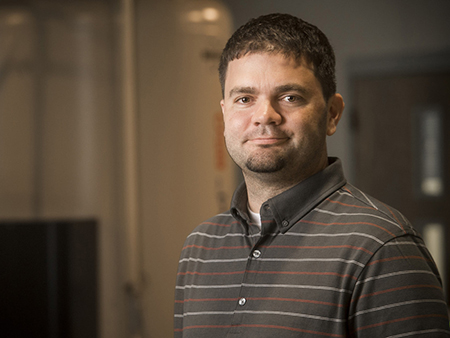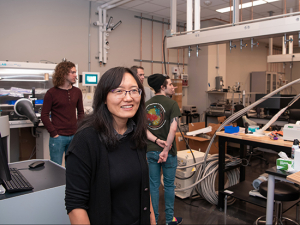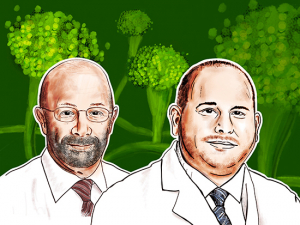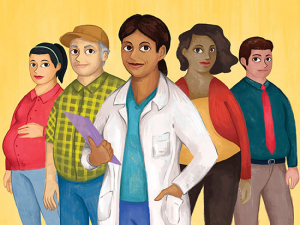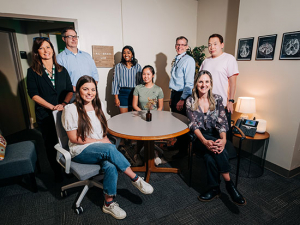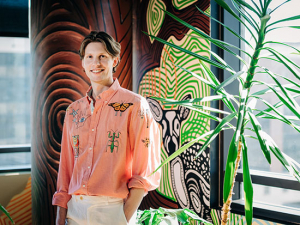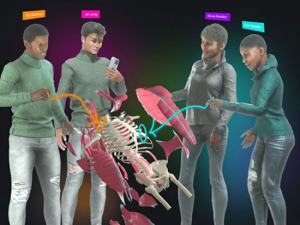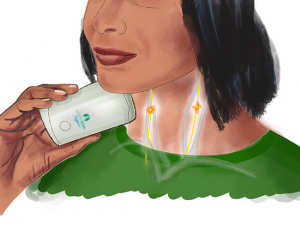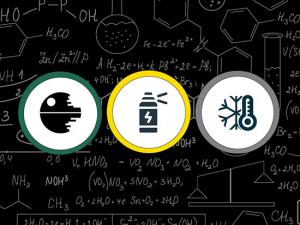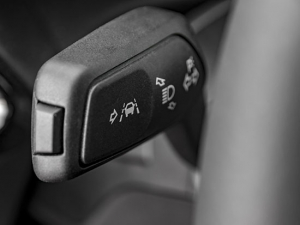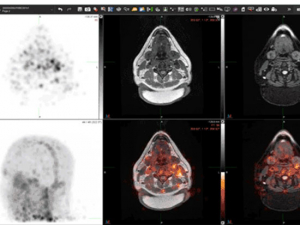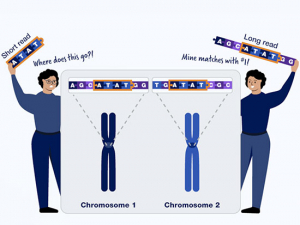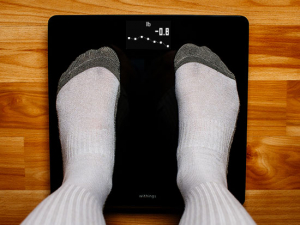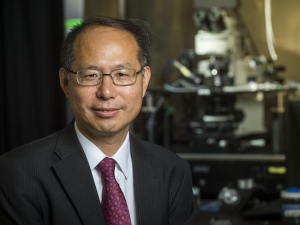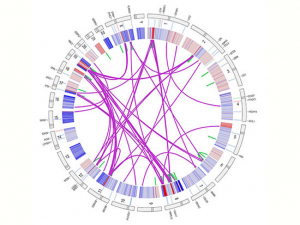 Matt Might, Ph.D., director of the Hugh Kaul Precision Medicine Institute, said his team is identifying potential new drugs to treat COVID-19 using a combination of logical artificial intelligence methods and molecular simulations.ANDREA MABRY / University RelationsThe U.S. Food and Drug Administration has approved more than 20,000 prescription drugs for marketing. None of them are designed to treat COVID-19 — although remdesivir, a therapy developed in part at UAB, appears to be on the fast track for that status.
Matt Might, Ph.D., director of the Hugh Kaul Precision Medicine Institute, said his team is identifying potential new drugs to treat COVID-19 using a combination of logical artificial intelligence methods and molecular simulations.ANDREA MABRY / University RelationsThe U.S. Food and Drug Administration has approved more than 20,000 prescription drugs for marketing. None of them are designed to treat COVID-19 — although remdesivir, a therapy developed in part at UAB, appears to be on the fast track for that status.
Still, among those 20,000 drugs may be many more that are effective at preventing or treating symptoms of COVID-19 — maybe even ones capable of clearing SARS-CoV-2, the virus that causes COVID-19, from the body. The challenge is to find them.
Matt Might, Ph.D., director of the UAB Precision Medicine Institute (PMI), already has pioneered successful, computationally driven methods for identifying new treatments for rare diseases. Now, “we are using and upgrading our own internal platform developed to repurpose drugs for rare diseases and cancer to identify treatments for COVID-19,” Might said.
Logical artificial intelligence and molecular simulations
"We are identifying drugs computationally using both logical AI methods and molecular simulations, some of which we've applied at scale for the first time with COVID-19," Might said. Both methods, he explained, “rely on finding 'targets' — human and viral proteins that are critical to viral survival and replication. We apply these methods to look for existing drugs or natural products that may hit these targets."
| “We are using and upgrading our own internal platform developed to repurpose drugs for rare diseases and cancer to identify treatments for COVID-19…. Fortunately, our investments in this platform will remain post-COVID-19, so we anticipate significantly enhanced capabilities in drug repurposing for rare disease, cancer and other complex health conditions such as Alzheimer's and diabetes." |
The logical AI approach is courtesy of a system called mediKanren, which combs through "databases and literature for evidence that a drug may — directly or indirectly — hit a target," Might said. The molecular simulation methods, on the other hand, "simulate the drugs interacting with the 3D structure of the protein, looking at their ability to dock with the right part of the protein," he said.
More than 200 hits
The two approaches already have identified more than 200 compounds predicted to interact with key viral and host proteins and interfere with infection success. These are ranked and scored according to the strength of the available evidence, Might said. One of the first predicted treatment strategies was androgen deprivation; the Precision Medicine Institute is now part of a clinical trial funded by the Veterans Administration to test the FDA-approved prostate cancer drug, degarelix, in male veterans with COVID-19.
Many more drug hits identified by Might's team now are being tested at UAB, in the lab of Professor Kevin Harrod, Ph.D., Benjamin Monroe Carraway Endowed Chair and professor in the Department of Anesthesiology and Perioperative Medicine. Harrod, whose lab was involved in vaccine development for the original SARS, is in charge of maintaining samples of the SARS-CoV-2 virus in his high-biocontainment lab and testing potential new treatments on these viruses.
‘Very promising’
"The key to making this work is to predict in advance which drugs to test computationally, so we've been supplying Kevin with drugs predicted to work," Might said.
| “[We are] finding 'targets' — human and viral proteins that are critical to viral survival and replication. We apply these methods to look for existing drugs or natural products that may hit these targets." |
Early indications are positive. Among the nearly 50 top targets that Harrod's lab tested initially, "about 42% showed anti-SARS-CoV-2 activity, which is very promising," Might said. Dosing and toxicity studies are needed before these compounds can be given to patients, he noted. "Just because it kills the virus in a dish doesn't mean it will kill the virus in a human being, but it's a critical filter. Pharmacokinetics and pharmacodynamics are critically important next steps, which is what we're working on. My hope is that with so many hits among approved drugs and natural products already, at least one of these will work in humans."
Precision medicine’s role in fighting COVID-19
A pivot to COVID-19 research makes sense because of the disease’s outsized impact, Might said. But he also envisions the work leading to new breakthroughs in PMI’s work on other conditions.
"COVID-19 represents a threat to health and economic vitality on a scale not seen in generations," Might said. "There are really only three paths to a 'next normal' — enabling mass, routine testing; finding effective treatments; and creating a safe, effective vaccine."
Precision medicine has a big role to play in all three areas, Might said. "We are working with partners in the state to use the power of genomics to enable low-cost, high-throughput routine testing. We also invested in research efforts at UAB that will significantly enhance our testing capabilities," by contributing $300,000 to fund 14 research projects by School of Medicine investigators that are focused on various aspects of COVID-19, he said. In terms of finding a vaccine, “PMI has invested in research that will help create the critical reagents for vaccine development and testing,” and “we also invested in novel approaches to treating COVID-19 that have a chance of improving severity and mortality [rates], even if they are not outright cures.”
Upgrading mediKanren to tackle COVID-19 ideally will pay off in terms of identifying new treatments. "Fortunately, our investments in this platform will remain post-COVID-19,” Might added, “so we anticipate significantly enhanced capabilities in drug repurposing for rare disease, cancer and other complex health conditions such as Alzheimer's and diabetes after the pandemic."
Read more on UAB's urgent COVID-19 research projects
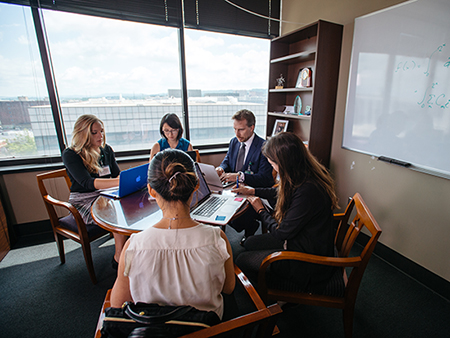
UAB sleuths find drug candidate against COVID-19
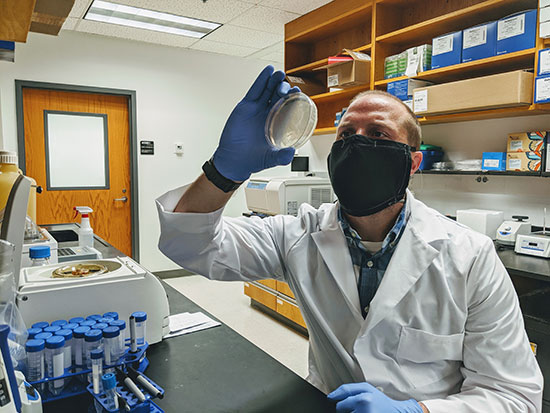
Glow-in-the-dark coronavirus testing is first project of new hire
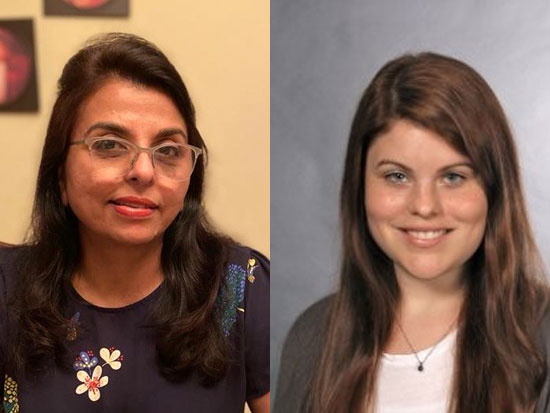
Researchers model COVID-19 infection in 3D human lung tissue
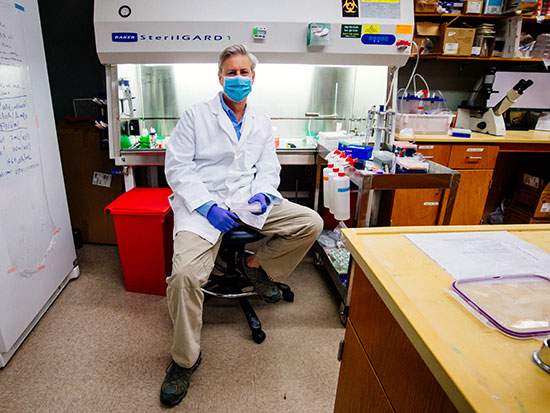
Tackling his third pandemic, UAB researcher gets up close with coronaviruses in order to kill them
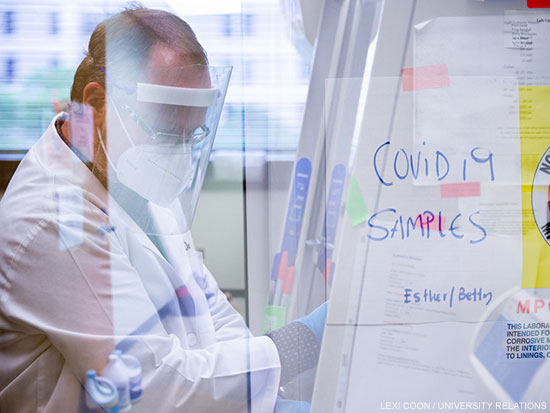
Researchers are creating a coronavirus showdown to settle pressing antibody problems
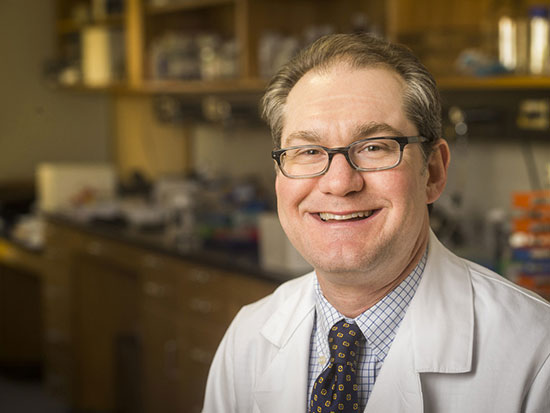
Where are the good antibodies against COVID-19? UAB project aims to find out
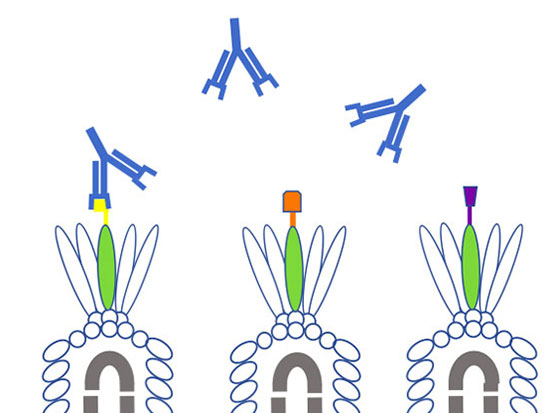
Helpful viruses may unlock the secrets of coronavirus antibodies
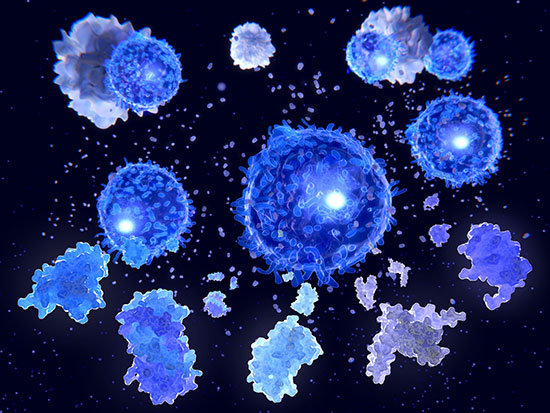
Cytokine storm treatment for coronavirus patients is focus of first-in-US study
